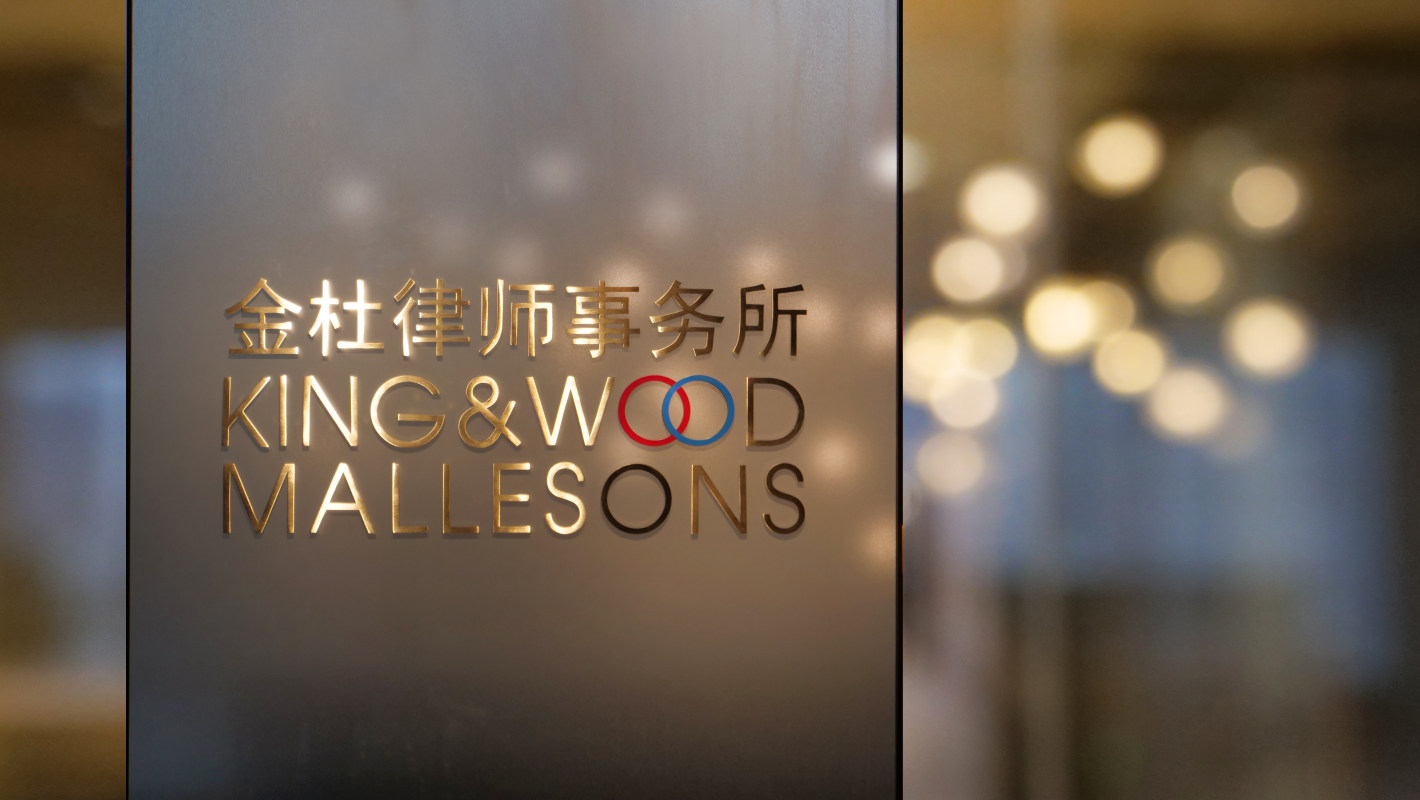KWM:The ‘Big Hero 6’ of Integrated Collaboration
Multiple “Firsts” in Its History The story of King & Wood Mallesons (KWM) dates back to before China’s Reform and…
Multiple “Firsts” in Its History
The story of King & Wood Mallesons (KWM) dates back to before China’s Reform and Opening-Up policy. At the time, lawyer institutions were called legal advisory offices, which were part of the state-owned enterprises and later became known as law firms, but still state-run. This explains why for a long time, lawyers were considered civil servants. In July 1985, the Ministry of Justice proposed reforms to the Central Secretariat and the State Council, introducing the concept of “independent accounting, self-financing, self-collection and expenditure, and retaining surpluses,” to transform legal advisory offices into collective, individual, or partnership law firms.
In June 1988, the Ministry of Justice issued the “Pilot Program for Cooperative Law Firms,” breaking the traditional state-controlled structure. This program allowed qualified lawyers to form cooperative law firms without state funding, operating on a self-financing basis, and requiring lawyers to resign from their public positions. By 1992, the Ministry of Justice gradually opened up these cooperative pilot programs, and by 1994, they transitioned to a partnership model, during which King & Wood Mallesons was established.
Wang Junfeng, who was working at the China Council for the Promotion of International Trade, along with three colleagues and two classmates from the Supreme People’s Court and the State Land Administration, resigned with the ideal of promoting legal progress and founded King & Wood Mallesons.
KWM’s establishment and development came with several “firsts”: it was among the first partnership law firms in China, one of the first Chinese law firms engaged in foreign-related legal services, and among the first to set up overseas offices. From its inception, KWM has played a leading role in China’s legal market.
In the 1990s, with the establishment of coastal open cities and inland development zones in China, there was a surge in foreign investment. In response to this demand, KWM focused on foreign investment, general foreign-related services, international arbitration, and securities business from its early days.
KWM’s internationalization took two steps: first, by recruiting lawyers with foreign-related business capabilities, mainly those with international or overseas study backgrounds. The second step was establishing overseas branches, starting with the Silicon Valley office in the United States in 2001. KWM annually sent a partner abroad for further study starting in 1998.
In March 2012, KWM formed a close alliance with Australia’s Mallesons Stephen Jaques, taking a substantial step towards internationalization. In 2013, SJ Berwin, a leading European law firm, allied with KWM, making KWM one of the few firms with practice capabilities in Mainland China, Hong Kong, Australia, the UK, the US, and Europe. Interestingly, KWM’s largest office is in Sydney, not Mainland China, occupying 11 floors.
In 2017, KWM merged with SJ Berwin, inheriting its offices and network in the UK, Europe, and the Middle East, achieving a significant leap in internationalization. KWM’s London office, in its first year after relaunch, generated £11.8 million in revenue with a net profit of £5.4 million and a profit margin of 46%.
With its expertise in foreign-related matters, KWM has accumulated rich experience in direct investment by multinational corporations and foreign companies in China, and in domestic companies attracting foreign investment. KWM now has 26 offices in Mainland China, Hong Kong, Japan, Singapore, Australia, and the United States. Its practice areas include banking and finance, aviation finance, capital markets, competition/antitrust, corporate mergers and acquisitions, dispute resolution, labor law, insurance, intellectual property, tax, bankruptcy restructuring, and commercial business. KWM’s clients include Citibank, China Life Insurance, the Beijing Organizing Committee for the 2008 Olympic Games, Walmart, PetroChina, and the Bank of China. Notably, KWM provided legal advice for PetroChina’s IPO, the largest in Chinese history.
Many former partners of Mallesons Stephen Jaques in Australia have been appointed as judges. Wang Junfeng, one of KWM’s main founders, is among the earliest lawyers qualified to engage in securities business. With over 30 years of legal service experience, his main practice areas include securities and finance, mergers and acquisitions, international trade and investment, and international arbitration.
Integrated Collaboration
KWM’s distinct advantage lies in its corporate structure, collaborative capabilities, and nationwide coordination. For instance, during a large domestic airline’s bankruptcy restructuring case, KWM mobilized hundreds of lawyers nationwide even before the contract was signed, temporarily recruiting many interns to complete the task swiftly. This level of resource allocation is unmatched by other law firms, making competition with KWM in bankruptcy cases particularly challenging.
KWM abandoned the solo practitioner model over a decade ago, adopting a modern corporate structure, which is its core strength but also a weakness, as it can lead to internal stagnation and resistance to change. This is why many KWM partners have left for other firms in recent years.
KWM is a crucial case study in integrated management for Chinese law firms. The key to integrated management is people. When establishing new branches, KWM sends teams from headquarters and recruits local talent instead of merging with local firms.
The core of integrated management is the partner evaluation and distribution mechanism. KWM’s partner evaluation is comprehensive, covering business revenue, market expansion, client maintenance, cultural inheritance, professional ethics, and outstanding contributions. Lawyer assessments by the HR committee consider factors like billable hours, work saturation, overall capability, dedication, and teamwork.
For the international market, KWM uses the Swiss Verein structure, considering the distinct nature of China’s market. This decentralized model allows integration with different regional legal markets, meeting common expectations.
Proactive Practice in R&D and Talent
For any law firm, talent and clients are the most critical assets. Lawyers seek a platform that provides economic benefits and a sense of honor and self-worth. KWM offers this platform.
In 2013, KWM launched the “Hundred People Plan,” facilitating partner and lawyer exchanges among its Mainland China, Australia, Europe, and Hong Kong offices. Since then, the number of exchanged partners and lawyers has exceeded a hundred.
In 2015, KWM started the “Forging Gold Plan” for targeted recruitment and training of fresh graduates. This plan includes stages such as early promotion, campus presentations, interviews and selection, training and guidance, practical work, evaluation, and retention, conducted annually in multiple cities nationwide.
In April 2017, KWM Academy was established to innovate education models, enhance professional skills, and cultivate innovative legal talents through cooperation with top law and business schools.
Currently, leveraging its integrated platform, KWM is focusing on legal technology, establishing the KWM Academy, KWM Art Center, and KWM International Center, forming a legal service ecosystem.
Maintaining a competitive edge requires significant investment in R&D and human resources. While many law firms discuss legal technology, few invest significantly. KWM’s investment in legal technology exceeds 100 million yuan. However, their internally developed software systems struggle to integrate with other legal services, lacking diverse feedback mechanisms. Nevertheless, as one of the first Chinese law firms to gain international recognition, KWM’s efforts and contributions deserve respect.
In terms of business, KWM focuses on cutting-edge issues in various industries. Embracing the 5G era, interacting with high-tech companies, and addressing “smart city” construction, providing services in areas like autonomous driving and cross-border data security, and continuously publishing related reports. Just as founder Wang Junfeng has been the president of the All China Lawyers Association for many years, leading 300,000 Chinese lawyers, KWM positions itself not just as a provider of legal services but as a researcher and explorer of legal practices in China and the world.








